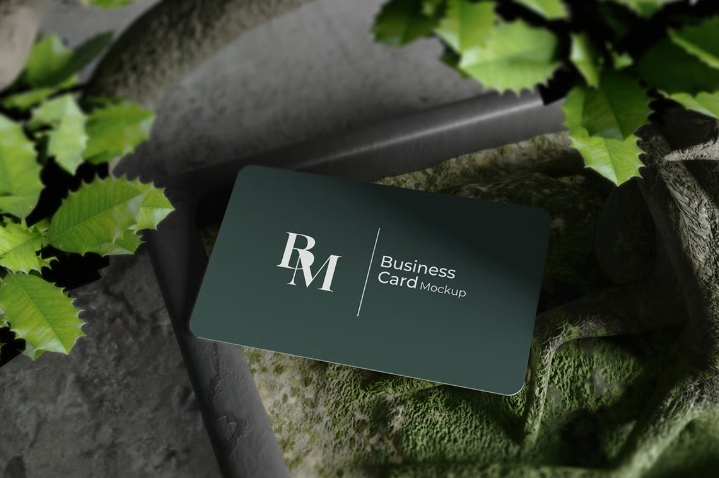Key Takeaways
Matte and uncoated business cards are different. This includes texture, appearance, and durability, making each better suited for specific design styles, writing needs, and brand preferences.
- Matte cards offer a smooth, non reflective finish that reduces glare and fingerprints, supporting clean and modern designs.
- Uncoated cards provide a natural paper feel and are easy to write on, making them useful for notes or appointment details.
- Color appears differently on each finish. Matte slightly softens colors, while uncoated stock absorbs ink for a more muted look.
- Durability varies by use. Matte coatings add light protection, while uncoated cards may show wear sooner with frequent handling.
- The right choice depends on purpose. Consider how the card will be used, written on, and presented when selecting a finish.
Picking the right finish for your business card is kind of like choosing what to wear to an important first meeting. It sets the tone.
Matte and uncoated cards are two of the most common options, and each one has its own style and distinct feel.
The real question is: which one works best for you and your print products?
Understanding Matte Business Cards
Matte business cards offer a sleek, professional look without the shine you’d get from a glossy finish. The smooth, non-reflective surface not only looks elegant but also feels great to the touch. Since there’s no glare, your text and business card design are easy to read, even under bright lights.
This style works well if you want to come across as confident and refined without being flashy. It’s a go-to choice for consultants, creatives, and professionals who want their brand to feel high-quality and reliable.
With a matte card, you’re leaving people with the impression that you pay attention to detail and value a polished, timeless look..
Key Features of Matte Paper Stock
- Smooth, soft-to-the-touch surface
- No glare, so text and designs are easier to read
- Gives a clean, professional, and polished look
- Works well for subtle color palettes or detailed designs
- Produces softer, more muted colors compared to glossy finishes
What are Uncoated Business Cards?
Uncoated business cards have a natural, authentic feel that works well for brands wanting to come across as warm and genuine. Unlike matte or glossy finishes, there’s no extra coating—so you get that raw, textured surface that feels a lot like premium stationery.
Because of that texture, it’s easy to jot down a quick note on the card, and the porous paper absorbs ink in a way that gives colors a softer, more understated look. The result is a design that feels thoughtful and approachable rather than polished or flashy.
Uncoated cards are a favorite for creatives, eco-minded businesses, and brands that want to project sincerity and authenticity. It’s a simple finish that helps your card stand out while leaving a memorable impression of quality and personality.
Key Features of Uncoated Paper Stock
- Natural, textured surface with a raw, authentic feel
- Easy to write on—great for appointment cards or personal notes
- Creates a rustic, vintage, or minimalist look
- Colors absorb into the paper, resulting in softer, muted tones
- Less durable and more prone to visible wear over time
Key Differences Between Matte and Uncoated Business Cards
To clearly illustrate the distinctions, here's a breakdown of the key differences between matte and uncoated business cards:
When to Choose Matte Cards
Matte business cards are an excellent choice for businesses that prioritize a modern, professional image and want to leave a lasting impression of sophistication.
They are especially well-suited for designs featuring intricate details or soft, muted tones, as the matte finish enhances clarity and prevents glare, ensuring every element stands out beautifully.
Matte business cards are particularly beneficial for corporate executives, luxury brands, creative agencies, lawyers, and financial consultants, as their sleek, non-glare finish projects a sophisticated and professional image, reinforcing a sense of credibility and trustworthiness.
Additionally, if readability is a top priority for your brand, the smooth, non-reflective surface of matte cards helps keep your contact information and messaging clear and easy to read in any lighting condition.
Tip: Don’t forget to share your social media on your business cards and other products; it’s one of the easiest ways for people to reach out and start a conversation with you
Customization Options
Matte business cards pair exceptionally well with special enhancements like:
- Spot UV Coating: Add glossy highlights to a matte card to make elements like your logo or key details stand out with eye-catching contrast.
- Round Corners: Choosing rounded edges, on all four corners or just a couple, gives your matte business card a softer, modern look that feels different from the classic square cut.
When to Choose Uncoated Cards
Uncoated business cards are an ideal choice for businesses that value a natural or minimalist aesthetic, offering a refined yet approachable way to represent your brand. Their porous, textured surface provides a more tactile experience, making them perfect for those seeking a rustic or vintage feel.
Uncoated cards are also highly practical when the ability to write directly on the card is important, allowing clients or colleagues to add notes or personal touches easily.
Uncoated business cards are ideally suited for businesses like eco-friendly and sustainable brands, artists, writers, and designers, handmade or artisanal product sellers, and cafés, restaurants, and small boutiques, as they capture authenticity and craftsmanship, leaving a memorable and lasting impression.
We recommend using an uncoated card stock for appointment cards that provides a smooth, writable surface ideal for pens, pencils, or markers.
Customization Options
Uncoated cards uniquely accommodate custom options like:
- Foil Stamping: Offers a striking contrast between the metallic sheen and the card's pourous texture.
- Colored Edges: Utilizing 32pt uncoated stock, colored edges in multiple colors adds an intriguing pop of color that complements the card's natural simplicity.
Matte Business Cards: Pros and Cons
To help you determine if matte business cards are the right choice for your needs, we’ve outlined some of their key pros and cons below.
Pros
- Professional, Elegant Finish – Delivers a smooth, refined look that enhances your brand’s credibility.
- Writable Surface – Ideal for adding notes, appointments, or personal messages.
- Reduced Glare – Ensures easy readability in various lighting conditions.
- Durable and Resistant to Smudges – Maintains a clean, polished appearance over time.
- Versatile Design Appeal – Complements a wide range of design styles, from minimalist to bold.
Cons
- Colors May Appear Slightly Muted – Matte finishes can soften vibrant colors, resulting in a more subdued look.
- Less Resistant to Moisture – Matte surfaces may show water spots or smudges if exposed to moisture.
Uncoated Business Cards: Pros and Cons
Selecting the right finish is important, so we’ve outlined uncoated business cards' key advantages and considerations below.
Pros
- Excellent Writability – Ideal for adding notes, appointments, or personal messages with any writing instrument.
- Natural, Textured Feel – Offers a classic, understated look that conveys professionalism and authenticity.
- Elegant, Non-Reflective Finish – Ensures easy readability in any lighting without glare.
- Environmentally Friendly Options Available – Often produced with recycled materials or sustainable paper choices.
Cons
- Colors May Appear Less Vibrant – The absence of coating can result in softer, more muted color tones.
- More Prone to Dirt and Smudging – The porous surface may absorb oils or dirt more easily over time.
- Limited Protection Against Wear – Uncoated cards may show signs of handling or wear more quickly without a protective coating.
Final Thought
Deciding between matte and uncoated business cards really comes down to the kind of impression you want to make and how you want your brand to function. Both finishes bring unique benefits that can help your card—and your brand—stand out in different ways.
Think about your audience, your industry, and what message you want to send when you hand over your card. The right finish can boost your networking efforts and make sure you’re remembered.
No matter what you choose, picking the right finish is a key step toward creating a business card that truly represents your brand with confidence. If you’re unsure which option fits your needs best, the team at Print Cartel is ready to help guide you through the process.




